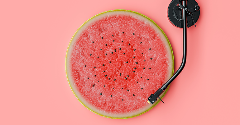News
PureCircle notes rise in stevia-enabled product launches
3 Apr 2018Global launches of beverage and food products containing stevia have grown steadily since 2012, and in 2017 alone, increased more than +10% vs. 2016, the company notes, citing data from Mintel.

PureCircle has reported that the use of stevia leaf sweetener in beverages and food products continues to expand.
Global launches of beverage and food products containing stevia have grown steadily since 2012, and in 2017 alone, increased more than +10% vs. 2016, the company notes, citing data from Mintel.Launches of beverage products containing stevia grew 11% from 2016 to 2017, while launches of food products containing stevia grew 10% from 2016 to 2017. Top categories for launches containing stevia in 2017 included snacks, juice drinks, dairy, carbonated soft drinks and confectionery.Producers of food and beverage products designed for kids (age 5-12) are also making more use of stevia, PureCircle notes, as it enables them to formulate products with no- or reduced-calories using a plant-based sweetener. In 2017, launches of products containing stevia with a claim for kids (aged 5-12) increased 16% from 2016.According to PureCircle, major companies launching products with stevia leaf sweetener last year included Calbee Foods, The Coca-Cola Co, Groupe Danone, Grupo Bimbo, Kraft Heinz, Nestle, PepsiCo, Seven & i Holdings; and Unilever. Stevia is a zero-calorie sweetener made from a plant, explains the company, while other major zero-calorie or high-intensity sweeteners (aspartame, sucralose and acesulfame potassium) are not. The usage of stevia leaf sweeteners has grown dramatically, PureCircle points out. In 2012, stevia was used in 16% of food and beverage products launched with high intensity or diet sweeteners. By 2017, that number had risen to 28%. Aspartame, however, is becoming less widely used, the company says. In 2012, aspartame was used in 36% of new foods and beverages utilizing high intensity sweeteners. By 2017, that number was down to 25%. That means, looking at foods and beverages launched with high intensity sweeteners in 2017, plant-based stevia was used more than aspartame, according to PureCircle.Beverage and food product launches with stevia, the company continues, are occurring worldwide with all global regions participating. The top two regions were Asia/Pacific (40%) and Europe (22%), followed by Latin America, North America and Middle East/Africa.Related news

Retail landscape lacks nutritious and affordable food, says ATNi
30 Dec 2025
A rapid increase in modern food retail has given retailers growing influence over consumer diets, according to global non-profit ATNi’s latest assessment.
Read more
Debate over ban on ‘meaty’ names for plant-based products reaches stalemate
26 Dec 2025
The debate over a ban on plant-based products using “meaty” terms has reached a stalemate, leaving manufacturers in limbo and still facing overhauls to their marketing and packaging.
Read more
Multi-sensory food and drink products to gain traction in 2026
16 Dec 2025
Trend forecasters predict that sensory elements will play a larger role, helping food and beverage brands differentiate themselves in a competitive market in 2026.
Read more
Big appetite for M&A between European and US food and drink companies
3 Dec 2025
Persistent tariffs on EU food and beverage exports have helped drive record levels of M&A activity between European and US companies this year, according to analysis by ING.
Read more
Non-UPF Program extends certification scheme to entire food industry
30 Nov 2025
The Non-UPF Program has extended its certification scheme to the wider food sector, championing a move towards healthier consumption habits.
Read more
Lancet study links UPFs to chronic disease risk
26 Nov 2025
UPFs are consistently associated with an increased risk of diet-related chronic diseases, according to a comprehensive review of global evidence in The Lancet .
Read more
Concerns swirl around cinnamon’s compliance with EU law
25 Nov 2025
Cinnamon may be a top functional ingredient, but it needs stronger protocols to ensure it meets EU food safety laws and quality standards, say researchers.
Read more
Oat Barista: Innovation for game-changing beverages
20 Nov 2025
Oat Barista is a clean label, sustainable, and innovative drink base specifically designed to create the perfect foam in one single ingredient.
Read more
How younger consumers are redefining ingredient choices and rejecting brand loyalty
18 Nov 2025
Gen Z and millennial consumers’ preferences for transparency, functionality, and purpose are “redefining the very nature of consumption itself”, says SPINS.
Read more
Hybrid formats and flexible positioning to disrupt category norms in 2026
17 Nov 2025
Trend forecasters expect food and drink to move more fluidly across occasions, functions, and formats as consumers seek versatility, novelty, and convenience.
Read more